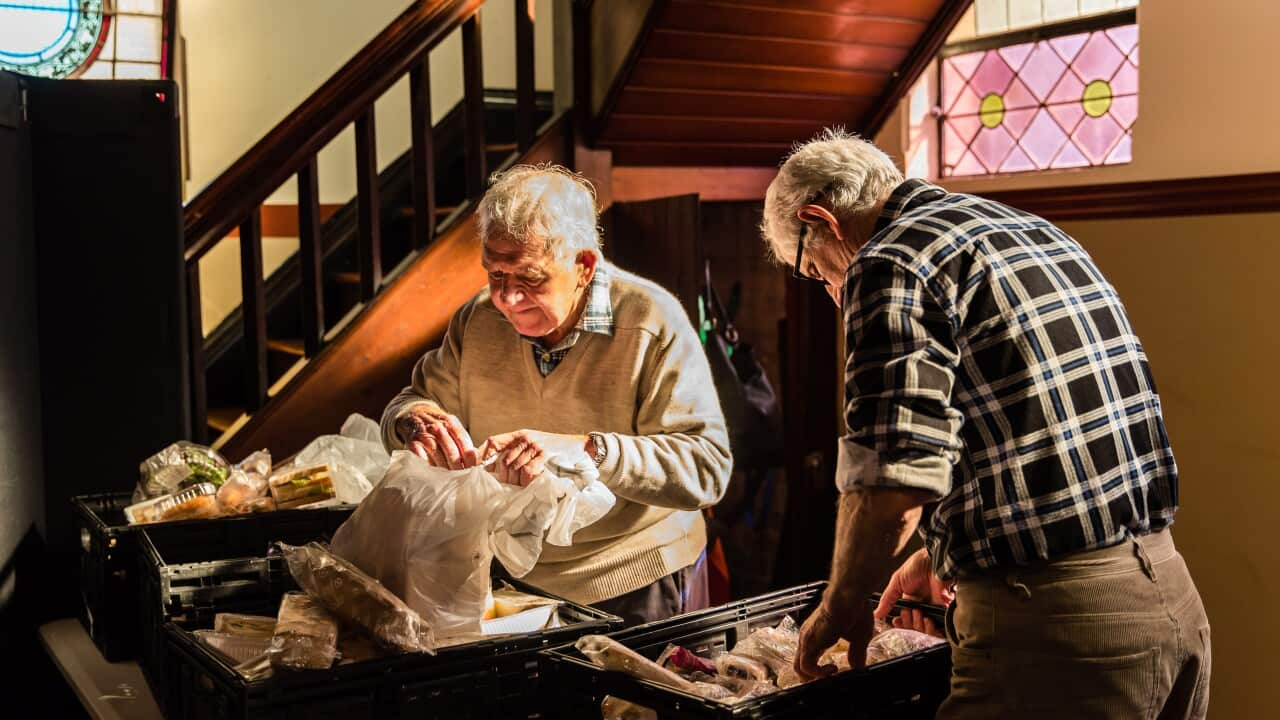On any given night, an estimated 20,000 children are homeless across Australia. The effect that these tumultuous circumstances can have on children cannot be underestimated, and this includes the food they have access to.
Not only do many homeless children not get enough to eat, but the food they do get access to often lacks sufficient nutrients. It's well known that a diet high in salt, sugar and fat can lead to a host of poor health outcomes, but for children, those outcomes can be even more serious. Poor habits developed in childhood are likely to be taken into adulthood, and the pattern continues.
COMMUNITY SUPPORT

The woman who travels around Melbourne to feed the homeless
The of a poor diet are enormous and include being underweight or overweight, tooth decay, constipation, lethargy, , poor mental health, irritability or anxiety, stomachaches, poor physical growth and sleep problems.
These impacts are brought into the classroom, and that's where the cycle of homelessness and poverty can intensify because unhealthy food can play havoc with their education.
These children are more likely to have , poor concentration and problems across their emotional and psychological development.
The list of , with increased rates of depression, anxiety, and even a lower IQ.
Ronni Kahn, founder and chief executive of food charity OzHarvest, says that "families who rely on food relief cannot afford fresh meat or fruit and vegetables, and often spend what little money they have on packaged or processed food as it's cheaper.
"One mum once told me that if she did not receive OzHarvest food, her kids would not have any fresh veggies."
Professor Danielle Gallegos, an accredited practising dietitian, says families have been forced to adapt to "crappy diets" that are energy-dense but nutrition-poor.
"They're thinking about foods that will fill up their family, and lots of fruit and vegetables aren't going to fill up children, but hot chips and lots of bread will stop kids from feeling hungry," she explains. "Another example is sausages; kids love them and you don't have to put any vegetables in it to make it a meal."
The challenge that you face isn't always about the ability for the organisation to deliver healthy, balanced meals to young people, it's about what are the reinforcing elements around that.
Jim Mullen, the chief executive of the food rescue organisation, SecondBite, says the role that nutrition plays in brain development in children and young people is essential.
He adds that while many organisations can provide nutritious meals, if a child's 'home' environment is "chaotic", then they simply won't benefit from these efforts.
"The challenge that you face isn't always about the ability for the organisation to deliver healthy, balanced meals to young people, it's about what are the reinforcing elements around that," he says.
"You can go to school and be encouraged to take the healthy option and eat the fruit and vegetables in that setting, but if that's not reinforced by parents, then you're going to fall behind.
HELPING EACH OTHER

These flatmates are feeding the community from their doorstep
Jenny Smith, the executive officer of the Council to Homeless Persons, says if children have poor nutrition, it means that they're tired most of the time, and they're not going to perform well in school when they're hungry.
"The consequences of that can be very, very serious; even a small period of having difficulty or not liking school can lead to a lifetime of low educational achievement," Ms Smith says.
"The statistics show that the younger a person experiences homelessness, the more likely they are to experience repeated episodes of homelessness later in life.
She says it's "terribly important" to intervene as early as possible to provide children with basic needs. "And that includes proper, nourishing food," she says.
premieres over three consecutive nights – June 9, 10 and 11 – on SBS at 8:30pm. The show will be available at SBS On Demand after the broadcast, including in subtitled Simplified and .
Join the conversation #FilthyRichHomeless
TACKLING HOMELESSNESS

The Sri Lankan restaurant feeding Sydney's vulnerable







